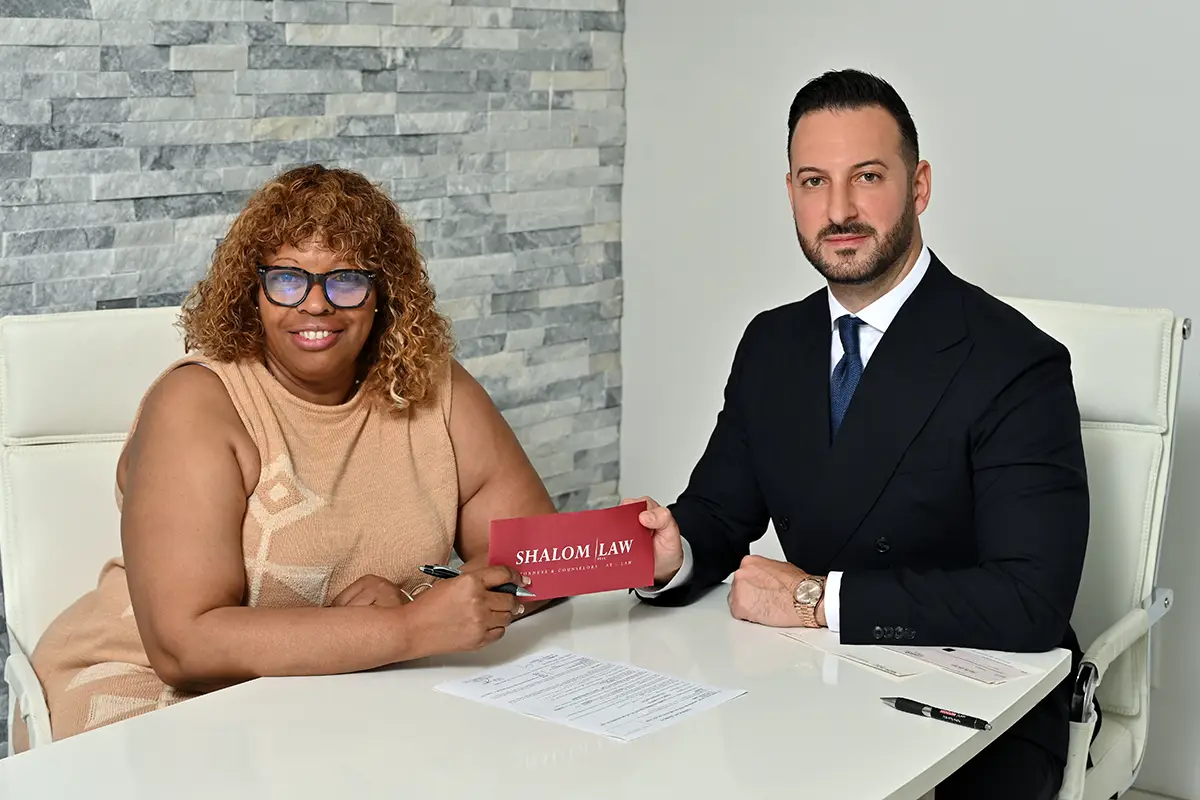Legal Support for Employment Discrimination by the Top Employment Law Attorneys in New York
Unlawful discrimination occurs when an employer takes an adverse employment action against a job applicant or an employee because of one or more of the person’s characteristics protected by law, such as age, race, and gender. Adverse employment actions can include being denied a raise or bonus, being passed over for a promotion, or being terminated. At Shalom Law, we work with both employers and employees to prevent and remedy discrimination in the workplace.

Anti-Discrimination Law
Discrimination is not permitted under numerous federal laws, such as Title VII of the Civil Rights Act of 1964 (Title VII), which prohibits discrimination based on sex, race, color, national origin, or creed. Other federal laws, such as the Americans with Disabilities Act (ADA) and the Pregnancy Discrimination Act (PDA), supplement Title VII’s protections to include individuals with disabilities, pregnant women, and older adults.
New York has robust laws to protect employees at the state and local levels as well. The two primary human rights laws are the New York State Human Rights Law (NYSHRL) and the New York City Human Rights Law (NYCHRL). These laws cover more employers and categories of employees than federal laws.
New York City Human Rights Law (NYCHRL)
- Broad Protections: Makes it illegal for any employer to discriminate based on characteristics such as race, color, creed, age, national origin, citizenship status, gender, gender identity and expression, sexual orientation, disability, military status, marital status, pregnancy, or caregiver status.
- Extended Protections: Offers additional protection against discrimination based on arrest or conviction records and status as a victim of harassment, requiring reasonable accommodations for pregnant or disabled workers and victims of domestic violence.
New York State Human Rights Law (NYSHRL)
- Wide Coverage: Applies to all employers in New York State, providing comprehensive protection against discrimination and harassment.
For more detailed information, you can refer to the U.S. Equal Employment Opportunity Commission website.
Making a Discrimination Claim
Discrimination claims can be complex and require a thorough understanding of federal and state laws. The laws allow for claims based on disparate treatment and disparate impact discrimination:
Disparate Treatment
- Definition: Occurs when an employer expressly singles out a certain protected group for harsher treatment.
- Proof: Requires showing how those around you with the same protected characteristic were treated the same way as you, while others not in the protected group were treated better.
Disparate Impact
- Definition: Involves policies or practices that appear unbiased but disproportionately affect a certain group.
- Proof: Requires demonstrating that an employer’s policy or practice has a more harmful effect on a specific group, such as workplace attire policies impacting religious groups.
Rights and Protections for Employees
Employees in New York are protected from discrimination based on various characteristics and are entitled to reasonable accommodations. This includes adjustments in work duties, schedules, and workplace environments to accommodate disabilities or other protected characteristics.
Have You Been Discriminated Against?
If you believe you have been discriminated against based on your protected characteristics, it is crucial to understand your rights and the legal options available to you. Our experienced employment law attorneys at Shalom Law can help you navigate the legal process and determine the best course of action.
How Shalom Law Can Help with your Discrimination Case
The attorneys at Shalom Law are dedicated to fighting workplace discrimination in all its forms. With years of experience, we provide expert legal guidance and representation to ensure your rights are protected.

Shalom Law Will Fight For You
Discrimination should never be tolerated in the workplace. If you believe you have been a victim of discrimination, contact Shalom Law for dedicated legal support. Our experienced attorneys in New York, are here to help you secure the justice and compensation you deserve. Contact us today at (718) 971-9474 for a consultation.
Employment Discrimination FAQ
What qualifies as unlawful discrimination?
Unlawful discrimination occurs when an employer takes adverse employment action based on characteristics such as age, race, gender, national origin, disability, and more.
What are the protections under Title VII?
Title VII prohibits discrimination based on sex, race, color, national origin, or creed. It also includes protections for pregnancy, disabilities, and age through supplementary federal laws.
How does the NYCHRL protect employees?
The NYCHRL offers broad protections against discrimination, covering a wide range of characteristics and requiring reasonable accommodations for pregnant or disabled workers and victims of domestic violence.
What is disparate treatment discrimination?
Disparate treatment occurs when an employer intentionally discriminates against a protected group, requiring proof that the group received harsher treatment than others.
What is disparate impact discrimination?
Disparate impact involves policies that appear neutral but disproportionately affect a protected group, requiring evidence of the policy’s harmful effect.
How do I file a discrimination claim?
Document your experiences and consult with an employment attorney at Shalom Law to file a claim under the appropriate federal or state law (Title VII, ADA, NYSHRL, or NYCHRL).
What compensation can I receive for discrimination?
Compensation may include lost wages, reinstatement, damages for emotional distress, and coverage for attorney’s fees.
What should I do if I face retaliation for reporting discrimination?
Document instances of retaliation and consult with an attorney to protect your rights and seek justice.

